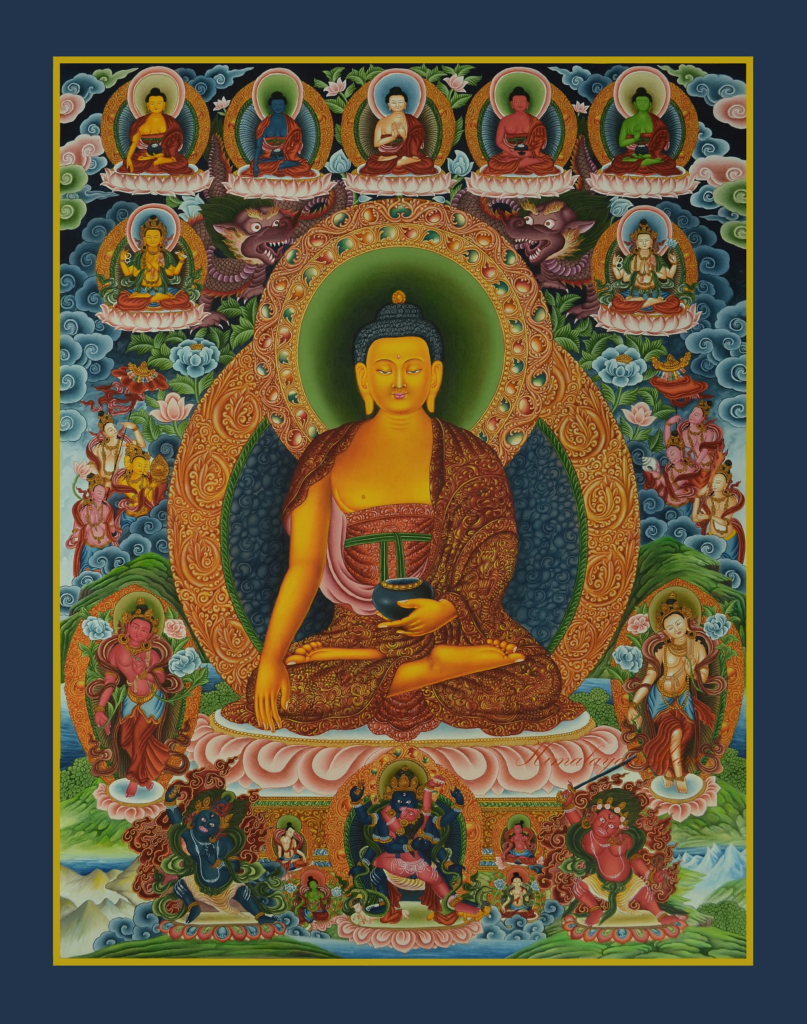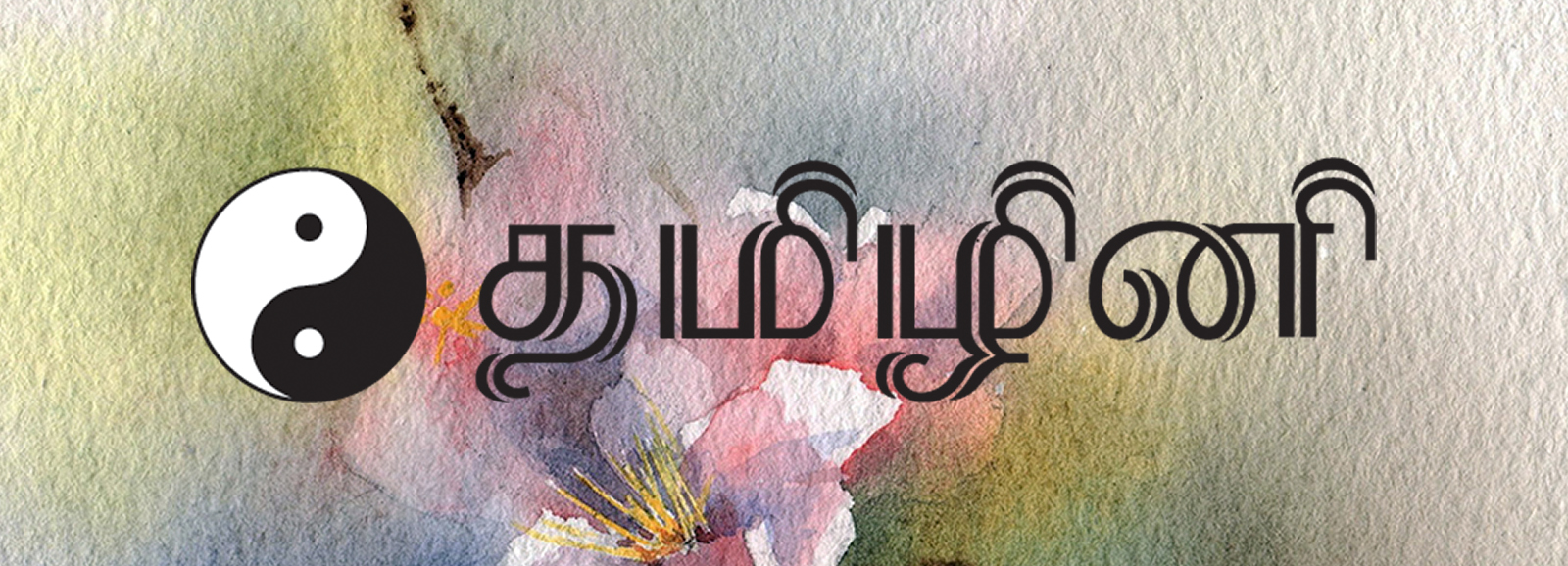Is it truly possible to live impersonally? Is it humanly possible? Is it necessary to be so in the first place? This book is the direct result of those words that acted as a trigger- to not take anything personally. Out of the blue, there was a revelation; an epiphany of sorts; an enlightened Bodhi vision of insight; that this very existence, of all things in creation, in this universe, in the present, everything that is happening, everything that there is, every happening, is amazingly impersonal. I make it bold that EVERYTHING THAT IS BEING MANIFESTED IN THIS UNIVERSE IS TRULY IMPERSONAL, from this cosmos to the microcosm that includes the plants, animals and human beings, the materiality and mentality of things, and the body-mind complex as I, me and mine.
Jesus said, ‘‘Look at the birds of the air: They do not sow or reap or gather into barns—and yet they are fed.’’ What this actually means is that in nature, animals and plants too, are made to fend for themselves in the present moment with their biological unit of body and mind. They keep responding to these impersonal conditions all the time, and do not spend time futuristically. Because each organism already has a set of predefined systems that have a component of future evolution and scope for amendments programmed within it. With this biological strength, an entity of the animal or human species either survives a hunt by a predator or succumbs to being a prey, but leaves its genetic imprints to be continued by the progeny of its population.

When it is said that our existence is impersonal; if you feel some sense of being abandoned, loss of identity, or of being defaced, it is exactly that reality is prior to one’s construct as self. The beginningless and endless cycle of this existence is a lonesome journey. Whatever has been taught to us in terms of spirituality, philosophy, or religion is to teach us or make us realize this fact and get liberated from the pangs of this alleged delusion of individuality or singleness. This book tries to inform you of this fact rather plainly, just like the vast, blue, summer sky in the late afternoon, without any decoration by blocks of fuzzy clouds.
‘’One should try to gain equipoise of mind under all circumstances’’, said Ramana Maharishi. As a part of the Sermon on the Mount, Jesus says this about God the Father: ‘’He makes His sun rise on the evil and on the good, and sends rain on the just and on the unjust.’’ One of the four sublime abodes decreed by the Buddha- the Brahma Viharas, is equanimity. When the Buddha declares, ‘’I teach only suffering and the cessation of suffering’’ that is because the sufferings that we undergo in this life is said to be due to the lingering ignorance of clinging to the idea of personhood. We are liberated by gaining the insight, the knowledge, and vision of awakening to the fact that in this existential reality, things are impersonal.
While skimming through various Canonical Suttas, it is learnt that the Buddha defines three marks of existence- suffering (dukkhā), impermanence (aniccā), and non-self (anattā), realization of which leads us to the end of suffering, the Nibbana. With the awakening through the advice of not taking things personally, intuitively I realized that the three marks of existence realized by the Buddha could be brought under a single umbrella with the word ‘Impersonal’. Interestingly, this single word, ‘impersonal’ without discrimination, accommodates ‘suffering, impermanence and non-self’.
Every aspect of existence is impermanent, which brings about suffering, because of non-self, meaning simply, the trilogy of existence into a consortium of impersonality. Playfully, when I replace one of the marks of existence, impermanence, with impersonality, it provides an extensive meaning to our existence.

All life forms including human beings tend to suffer, simply because we are still fettered to the idea of self, despite the reality that things of conditioned constructs, such as body, mind, and the earth are impersonal in this whole universe. The sun shines impersonally. Not by its own accord, but by its intrinsic nature of elements and conditions. Sunshine is both good for those who need it and bad for those who do not need it at a particular moment of time and place. Seasons keep cycling; somebody enjoys the cold season while there is someone who does not enjoy it. Some want the spring season to continue endlessly and some want summer to. But there is no control over the seasonal cycles. They simply keep cycling, arising and passing impersonally.
The Buddha shows the way out of the existential suffering, a kind of angst within us all the time, termed dukkha, which we experience, even after achieving great strides in life personally, socially and professionally. The Buddha, an invincible expert in guiding one to liberation, comes with a raft of release methods, meticulously developed and validated, such as the four frames of reference, the four right exertions, the four bases of power, the faculties, the five strengths, the seven factors for awakening, and the noble eightfold path. These are the practical syllabi for a person to graduate in personal liberation to begin with, and then share with and guide others in their journey towards liberation.
We know pretty well intuitively that whatever offers permanent happiness is the true source of happiness. Concurrently, every kind of happiness or pleasure we derive from this existence of the body-mind complex falls short of this measure of true happiness because they keep changing- that is, they are impermanent. And whatever is impermanent, has a tendency to change, therefore, rendering it unstable, which is the source of suffering (dukkhā). Therefore, all the mundane happiness of this existence is a source of suffering due to their impermanence and hence, could be considered far from one identifying as I, me and mine. This, eventually, could be concluded as not-self, and this is the knowledge and vision of things as they are, yatha-bhoota-gnana-darisana, decreed by the Buddha.
One night, a pregnant stray cat visited our house, and immediately, my daughters became attached to the expecting cat. When it delivered four kittens underneath a stone bench next to the main door of our house, we ensured the mother and the babies were safe, comfortable and adequately nourished with food and fluids. The mother and the kittens seemed to be happy, and eventually, our family also became excited and happy, making use of the opportunity to exercise our compassion by showering them with care and affection. When I looked deep into this incident, it occurred to me that it actually involved a host of events- our family members derived happiness by responding to the cats’ needs, the kittens derived a sense of safety and nourishment from their mother’s milk and warmth, the mother cat derived pleasure and the kittens by partnering and mating with her boyfriend, and suckling its babies with motherly love and care. But what I realized at the end was, ultimately, the power of creation, conditioned through the naturally progressive, primordial, and evolutionary, inclination of species as proposed by Darwin. At the same time, realized the genetically defined Mendelian law of genetics, the proven principles of genetics which ensures the sustenance of species in general, and in this case, the cat’s family at the domestic level.
The basic building blocks of all life forms at the molecular level are the DNAs, and the molecules that build the DNA are the same across all organisms and species. Being impartial itself means the process is impersonal. Though, at the molecular level, all life forms are similar, the cellular complexity and functional innovations make each species of life form different; like the difference between a mole and an elephant and their total difference from plants, from an alga to a fig tree. Even with this vast external difference in appearance and habits, the human mind tends to perceive everything as personal and individually isolated. But this flimsy perception can be cleared with this simple example- a change in the levels of atmospheric oxygen, which is invisible to us, can either burn the whole biosphere or suffocate all life forms to death; similarly, the sun could run out of its burning fuel depriving the earth of solar energy.

We are told by the space scientists that the universe keeps expanding and surely it is, according to the circumstances that it’s fit into, a clear sign of impersonality. And if it keeps expanding forever, the earth would completely freeze again, heeding to the prevailing conditions of impersonal nature. Therefore, the whole construct of the universe is impersonal and the whole suffering is because of our tendency to take it personally, the ‘namarupa’, which is simply the body-mind complex.
This book is not an attempt to merely oversimplify the world’s greatest philosophical scripts. There’s no way of saying more than what the Buddha has to offer through the suttas. It’s not simply a new theory, but rather a new perspective; to see existing facts and to know reality through a renewed vision and life. This book will thus ponder over how impersonal everything is- the universe, the solar system, the earth, the physical body, everything that we deal with using our senses in this very life. Considering what’s impersonal as personal brings about suffering. It is clear now that the particular tendency of taking this body personally is biological, and to be more specific, existential. It is the fundamental biological need innate within us to take care of oneself, as one’s existence or one’s life, despite the fact that it is impersonal, is in its primary construct.
Unless the life forms feel the urge of enjoying pleasure that they seek in conjugation, which is personal and to be fulfilled at all cost, it cannot continue its species through its progeny. The pleasure of procreation, as a bait to prolong the species, is basically existentially biological in its origin. So, the tendency of taking something, rather everything, personally, is not a delusion per se. But it happens to be a challenge of existence to be handled mindfully for the benefit of oneself and others, at the same time. The challenge is that we tend to have these kinds of pleasures more and more and that too, endlessly. Because we tend to get addicted to pleasures and be aversive to pai,. we seek fulfillment all the time and not disappointments and failures.
So what is the midpoint? How do we arrive at it? Is seeking the midpoint itself going to pose a burden, the burden of bhava, the process of becoming? Realizing the truth that life is impersonal is definitely going to be a liberating process. The Soto Zen practice founded by Eihei Dogen and Keizan Jokin during the 13th century in Japan, emphasises continuous sitting practice without any intent or goal, and this is called Shikantaza, call it ‘just sitting for sitting’s sake’, a way of zen awakening. It is not simply exhausting the biological tendency of desires, but fulfilling this life with contentment and equanimity through understanding the truth of impersonality within the design and structure of our existence. Looking from this perspective, it is realized that any act of ‘selfishness’ is not originally selfish at all. Because there is otherness in every selfish act because of impersonality, which is, in a way, a process of interdependently constructed universality.
Renowned psychologist William James said, ‘’There is but one cause of human failure. And that is man’s lack of faith in his true self’’ and the Buddha tells us that ‘‘that is the self of no self’’, the ultimate beauty of the impersonality of this existence. This book tries to delve deeper into the various aspects of impersonality and further, to inspire the readers’ mind to understand and realize this impersonality, to have a ‘‘nibbanic’’ life of freedom, happiness and joy within this frame of existence.
*
P.S: This is an introductory note for the upcoming book titled ‘Impersonal Personhood: An Alternative Buddhist Perspective.’
